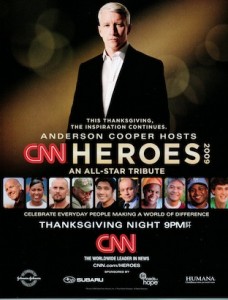UPDATED
 On the front page of Sunday’s print edition and home page of the online edition, the New York Times is clucking about an animation it puts in the category of “Maybe Journalism.” The widely seen video, from a Hong Kong media company, purports to show what transpired between Tiger Woods and his wife in the recent incident that has dominated our celebrity-addled news programming lately.
On the front page of Sunday’s print edition and home page of the online edition, the New York Times is clucking about an animation it puts in the category of “Maybe Journalism.” The widely seen video, from a Hong Kong media company, purports to show what transpired between Tiger Woods and his wife in the recent incident that has dominated our celebrity-addled news programming lately.
Here’s the top of the Times’ story, entitled “In Animated Videos, News and Guesswork Mix”:
Welcome to the new world of Maybe Journalism — a best guess at the news as it might well have been, rendered as a video game and built on a bed of pure surmise.
A computer-generated ‘news report’ of the Tiger Woods S.U.V. crash — complete with a robotic-looking simulation of Mr. Woods’s wife chasing him with a golf club — has become a top global online video of the moment, perhaps offering a glimpse at the future of journalism, tabloid division. (No matter that the police said she was using the club to release Mr. Woods from the car.)
The minute-and-a-half-long digitally animated piece was created by Next Media, a Hong Kong-based company with gossipy newspapers in Hong Kong and Taiwan. The video is one of more than 20 the company releases a day, often depicting events that no journalist actually witnessed — and that may not have even occurred.
A glimpse at journalism’s future, tabloid division? How about journalism’s present, in a somewhat different form?
It looks more to me like the latter. Next Media is following in the footsteps of what American journalism has made a trademark, particularly in the book, magazine and tabloid-TV businesses. Modern books about politics and business, in particular, are loaded with direct quotes and minute details of events “no journalist actually witnessed.”
These techniques have a purpose. They’re designed at least as much to capture and hold the attention of print and video audiences as to enlighten them.
I acknowledge that this is a bit of a stretch. I’m emphatically not saying that fly-on-the-wall print accounts, which journalists claim are based on extensive interviews with principals, are close to the same thing as this maybe-it-happened video.
I am saying that when people ask you to trust their depictions of “events that no journalist actually witnessed — and that may not have even occurred,” you take them with a serious grain of salt.
Some of this stuff has been going on for decades. In 1965 Truman Capote called his masterwork — In Cold Blood, about the killing of a Kansas family and the killers’ path to their executions — a “nonfiction novel”. He helped create a new form of literature. He also helped spark the form of journalism that has become so standard now: the fly-on-the-wall pretense that pervades so much of what we see.
Critics later questioned Capote’s motives and methods, and ultimately the basic honesty of the book. But he was honest at least in the sense that he acknowledged that he was writing a novel, and more rigorous as a reporter than a lot of modern journalists even pretend to be. (Norman Mailer also called his brilliant book about a real crime, The Executioner’s Song, a novel.)
The Washington Post’s Bob Woodward is the most famous current practitioner of the nonfiction novel, though he’d undoubtedly insist that his work is pure journalism. I don’t trust a thing he writes, and haven’t for some time.
Woodward’s books are loaded with direct quotations of people he says he interviewed, and some he didn’t. How can you have faith, beyond assuming that he’s telling the truth when he says he has it right, that it is right? Why should you?
Now everybody, or seemingly everybody, follows the Woodward lead. Novelistic journalism is the order of our times. But I’m convinced it’s one the reasons people have concluded, rationally, that they can’t really believe anything anymore.
 Newspapers, too, play the fly-on-the-wall game. Consider what the Times itself did today.
Newspapers, too, play the fly-on-the-wall game. Consider what the Times itself did today.
The “Maybe Journalism” piece runs at the bottom of the front page, while at the top is a long story about how President Obama, after long consultations with advisors, reached his decision to escalate the war in Afghanistan. The story is based, says the reporter, on “dozens of interviews with participants as well as a review of notes some of them took during Mr. Obama’s 10 meetings with his national security team. Most of those interviewed spoke on the condition of anonymity to discuss internal deliberations, but their accounts have been matched against those of other participants wherever possible.”
We readers are still being asked to trust the word of people who violated the confidentiality of the White House Situation Room and other internal deliberations. I tend to believe the overall thrust of the story — that Obama and his team struggled mightily with this decision — but I don’t have any faith in most of the particulars, including the anonymously sourced direct quotes of the president and others in the deliberations.
Why is this not, in the words of the story about the Hong Kong animators, “depicting events that no journalist actually witnessed — and that may not have even occurred”?
This isn’t the first draft of history. It’s the first draft of someone’s nonfiction novel on the Obama presidency.
(Disclosure: I own a small number of shares in the New York Times Co. They’re worth a lot less than I paid for them. Updated to make clearer that I’m not equating in any apples-to-apples way the animations and the fly on wall journalism.)


